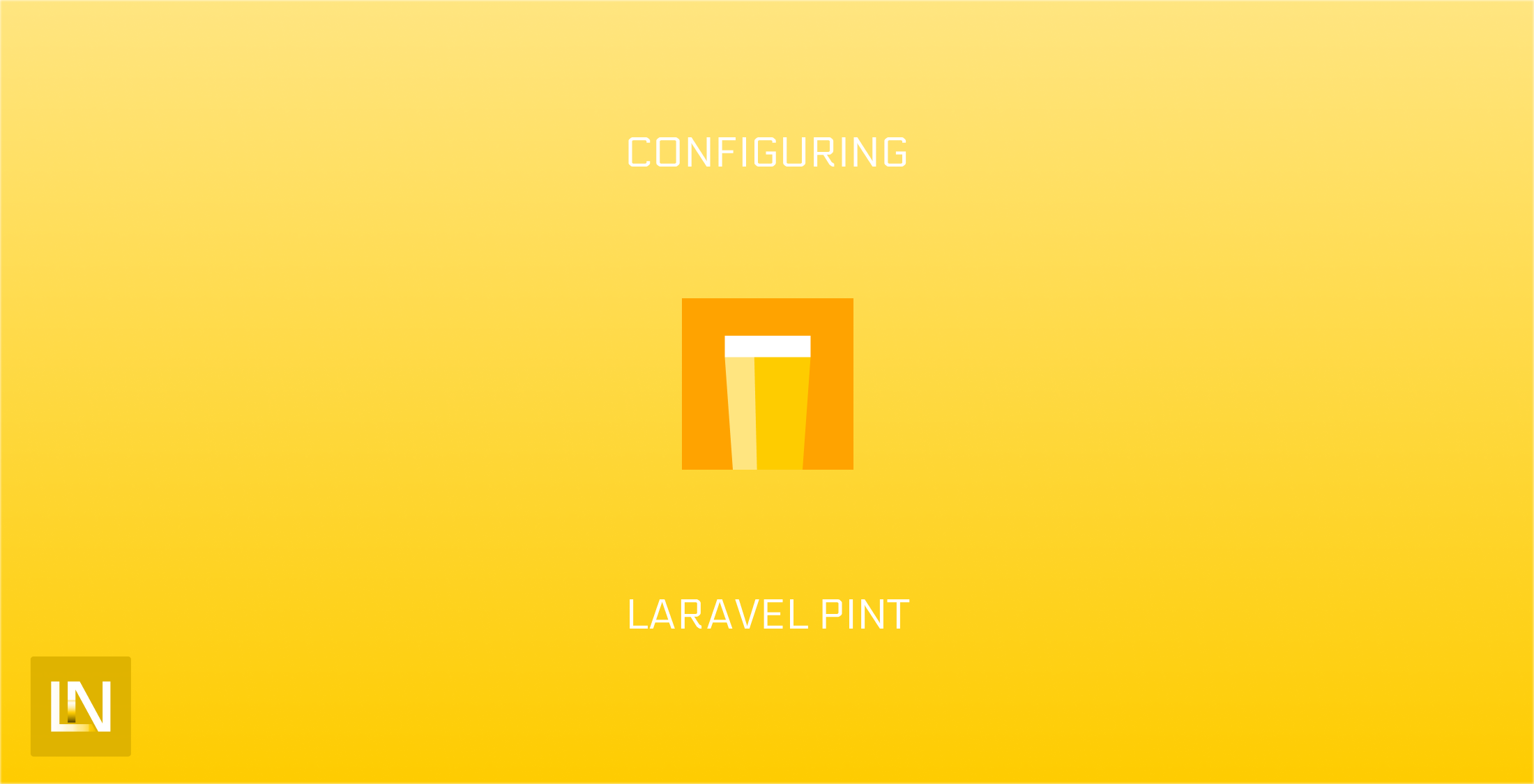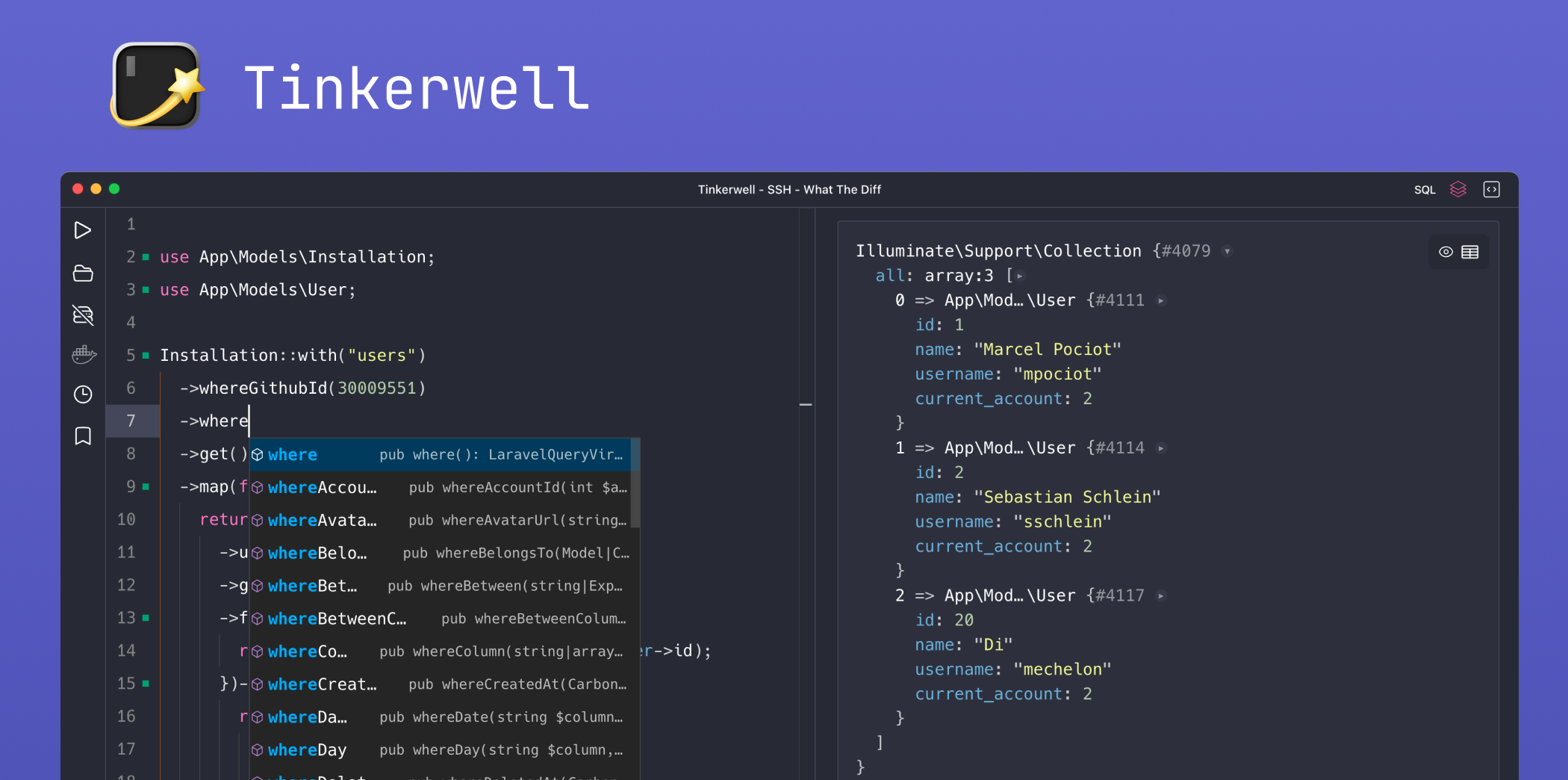Laravel Pint is the hot new thing from the Laravel team. An excellent wrapper around PHP CS Fixer that is my go-to code standards tool.
I previously wrote about the release of Laravel Pint when it was first released. By default, it will follow the laravel standard out of the box, a custom standard by the Laravel team.
What do we do if we want something else, though? Let's dive in a little.
If you read the documentation, it is very informative as to what you can do with Laravel Pint. You can implement many rules in a handy JSON file, but which ones work well, and what should you do?
I am going to walk you through my personal Laravel Pint configuration and explain what and why I choose these settings.
Align Multiline Comments
This rule align_multiline_comment will allow you to fix any comments that I call "borked". They have all gone out of alignment and look weird. It is not a significant thing in terms of your code, but it is an annoyance when reading through it as your eyes will be drawn to it instead of what you want to focus on.
Array Indentation
The rule array_indentation will allow you to fix any arrays you are creating that has, again, become "borked" for some reason. Another code cleaning rule that will tidy up where spaces may be used in the wrong place etc. etc.
Array Syntax
The array_syntax rule is one that you may not need, depending on the age of your code. This rule will change the old array() syntax to the new [] syntax. I keep this in case I have old code or am working with multiple developers who may fall into old habits.
Blank Line After Namespace
The blank_line_after_namespace rule is a housekeeping rule that I use to ensure that there is always a blank line under the namespace declaration on any class.
Blank Line After Opening Tag
The blank_line_after_opening_tag rule is similar to the previous rule but enforces a blank line after the opening PHP tag. I like to keep my code organized and uniform - these rules enable this.
Combine Consecutive Issets
The combine_consecutive_issets rule is one that taught me that I could use more than one argument in an isset check -which was something new to me. This will convert any code that combines one or more isset checks into one clean check.
// beforeif (isset($a) && isset($b)) // afterif (isset($a, $b))Combine Consecutive Unsets
The combine_consecutive_unsets rule is like the above rule, something I wasn't aware I could do - and forces me to use better code.
// beforeunset($a);unset($b); // afterunset($a, $b);Concat Space
The concat_space rule is one of my favorites. It forces spaces between any string concatenation - which is one of the things I hate not seeing. I like my code to have room, not be all squashed up like space will slow it down.
// before$name = $request->get('name');$message = 'Hello '.$name; // after$message = 'Hello ' . $name;Declare Parentheses
The declare_parentheses rule is almost the opposite of the above rule. Anywhere I use a declare statement, I want to ensure there aren't unnecessary spaces around it.
// beforedeclare( strict_type = 1 ); // afterdeclare(strict_types=1);Declare Strict Types
The declare_strict_types rule is a must-have for me. With the amount of type usage I use in my code, I also like to ensure that strict typing is enabled. This is a handy rule to force this in your code base without remembering to add it every time. Great for Laravel, as you don't need to modify your stubs to add them!
declare(strict_types=1);Explicit String Variable
The explicit_string_variable rule is one that I love to add as it makes my code that much easier to read. Anywhere you are using implicit variables in your code, it will make them explicit like the following:
$name = 'Steve'; $implicit = "Hello, $name";$explicit = "Hello {$name}";Final Class
The final_class rule is one I will haunt Michael Dyrynda about. It forces all your classes to be final in your application. Use caution, though, as it will make every class final, which can lead to breakages if using pest or extending the base Controller in Laravel. Luckily for me - I don't worry about this so much as I don't use a lot of inheritance.
Final Internal Class
The final_internal_class rule is a way you can combat the above rule. If you do not want a class to be final because you plan to extend it - make sure that this rule is set to false in your configuration. This will tell the final rule to ignore this one and that internal classes should not be final.
{ "final_internal_class": false}Fully Qualified Strict Types
The fully_qualified_strict_types rule will force you to import the class as a use statement in your code instead of declaring the fully qualified class name as a type in methods etc. This keeps code clean, and clean code is happy code.
// beforepublic function __invoke(\Illuminate\Http\Request $request) // afterpublic function __invoke(Request $request)There are many more rules that I use, so instead of boring you with every single one I will share my configuration, also have a look at the PHP CS configuration website so that you can see what rules are and what they do.
Here is my current configuration, but bear in mind I tweak this often as I feel code standards should be a living thing. It should be something that you constantly re-evaluate and see if it still meets your needs.











